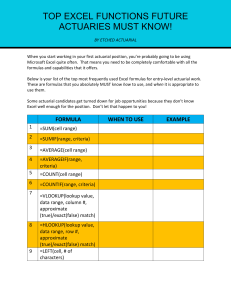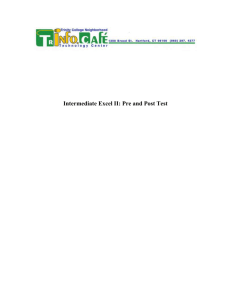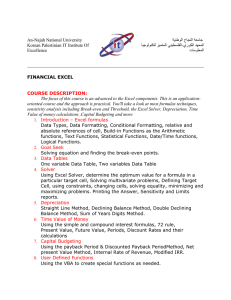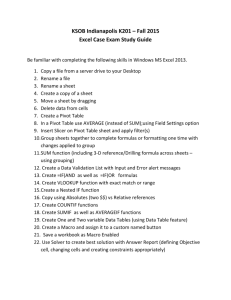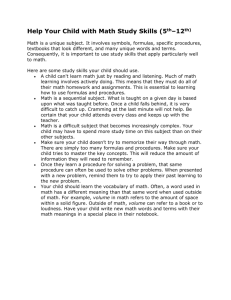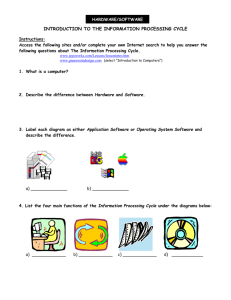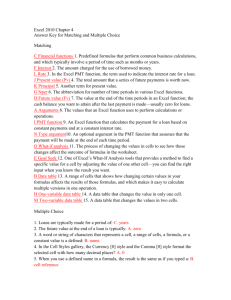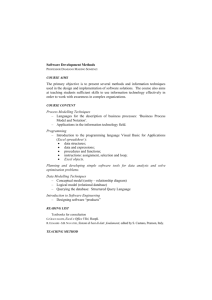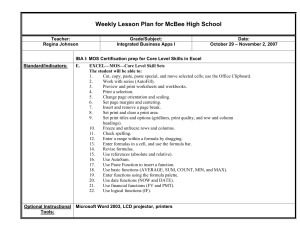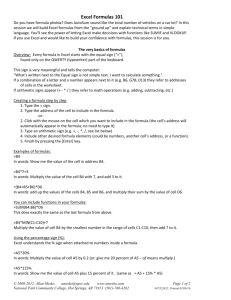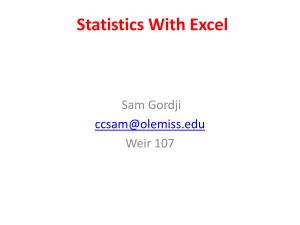OMGT 4853 Excel Proficiency Exam Prep - Course Syllabus
advertisement
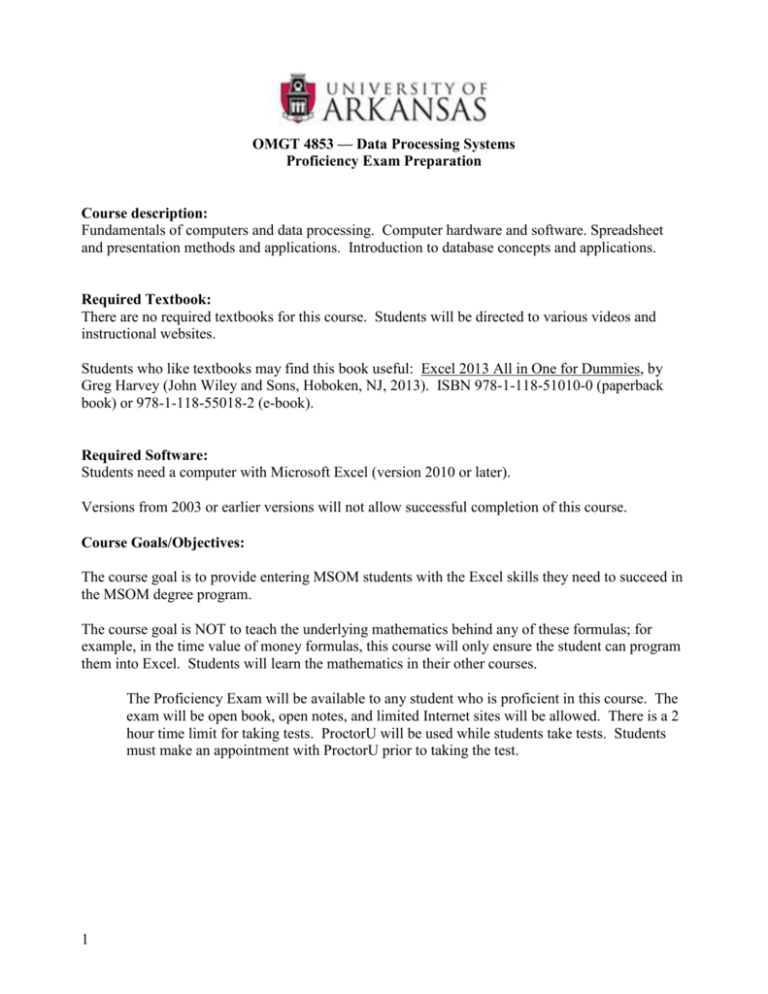
OMGT 4853 — Data Processing Systems Proficiency Exam Preparation Course description: Fundamentals of computers and data processing. Computer hardware and software. Spreadsheet and presentation methods and applications. Introduction to database concepts and applications. Required Textbook: There are no required textbooks for this course. Students will be directed to various videos and instructional websites. Students who like textbooks may find this book useful: Excel 2013 All in One for Dummies, by Greg Harvey (John Wiley and Sons, Hoboken, NJ, 2013). ISBN 978-1-118-51010-0 (paperback book) or 978-1-118-55018-2 (e-book). Required Software: Students need a computer with Microsoft Excel (version 2010 or later). Versions from 2003 or earlier versions will not allow successful completion of this course. Course Goals/Objectives: The course goal is to provide entering MSOM students with the Excel skills they need to succeed in the MSOM degree program. The course goal is NOT to teach the underlying mathematics behind any of these formulas; for example, in the time value of money formulas, this course will only ensure the student can program them into Excel. Students will learn the mathematics in their other courses. The Proficiency Exam will be available to any student who is proficient in this course. The exam will be open book, open notes, and limited Internet sites will be allowed. There is a 2 hour time limit for taking tests. ProctorU will be used while students take tests. Students must make an appointment with ProctorU prior to taking the test. 1 Subjects covered Add numbers in Excel Basic Math in Excel (Add, Subtract, Multiply, Divide) Basic formatting (commas in numbers; currency; percent; decimal places; scientific notation) Using Functions (SUM, PRODUCT, SUMPRODUCT) Operator order Relative and Absolute Referencing Fill In Formulas Freeze or Lock Panes Range Names - define, audit, use, delete More Complex Formulas (using multiple operators, cell references, and functions) Use range names within formulas Mean, Standard deviation Weighted averages Create pie chart Create bar chart Create line plot Create XY scatterplot Pareto charts Histogram MAX and MIN and COUNT SORT Transpose data Transpose a matrix Matrix multiply, matrix invert VLOOKUP and HLOOKUP 2 IF statements – IF, AND, OR, SUMIF, COUNTIF Data sort and filter Pivot Tables Solver Goal Seek Random number Generation - uniform, normal Poisson Distribution Monte Carlo Simulation Time Value of Money Functions (PV, FV, NPV) ANOVA
